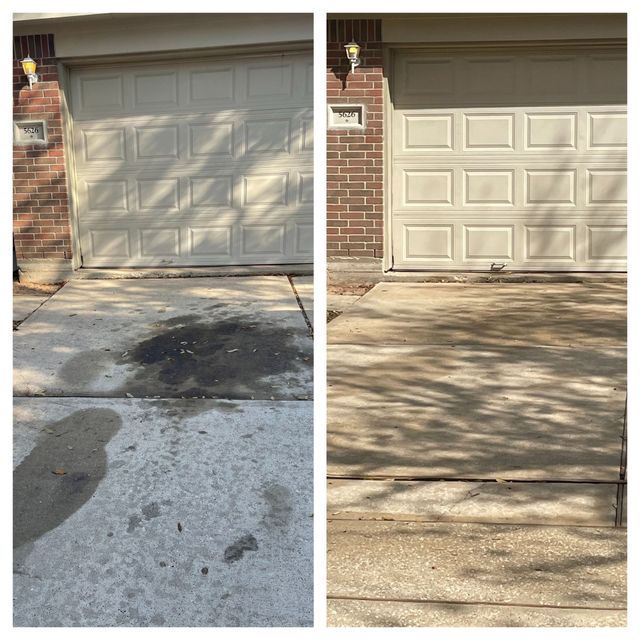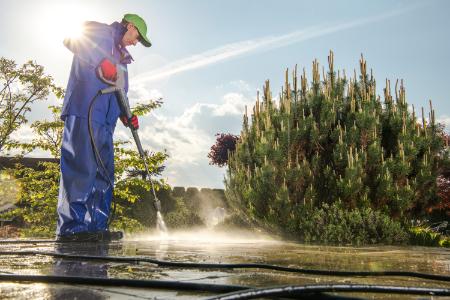Professional Strongsville Fleet Washing Services for a Spotless Fleet
Professional Strongsville Fleet Washing Services for a Spotless Fleet
Blog Article
Basic Steps for Successful Oil Stain Removal From Automobile Surfaces
Efficient oil stain removal from automobile surface areas is important for preserving both aesthetic appeals and value. Understanding the kind of stain and the product affected can substantially influence the cleansing process. By using the right methods and products, one can accomplish satisfactory outcomes without compromising the integrity of the lorry's surface. However, the technique to pre-treatment and the choice of cleaning up representatives can vary extensively, resulting in various outcomes. As we explore these necessary steps, it ends up being noticeable that focus to detail is vital for success. What specific techniques can guarantee optimum lead to this venture?
Examining the Spot Kind
When tackling oil discolor removal from automobiles, it is necessary to first analyze the kind of stain present. Oil spots can differ substantially based on their beginning, age, and the surface they have permeated. Typical resources of oil discolorations consist of engine oil, transmission liquid, and even cooking oil, each possessing distinct qualities that influence the removal procedure.

Furthermore, consider the location of the stain. Strongsville Fleet Washing. Discolorations near the engine area may show a leak, while those underneath the automobile can result from drips or spills. By properly recognizing the tarnish's origin and condition, vehicle owners can pick the most efficient elimination techniques, making certain effective outcomes without causing additional damages
Event Necessary Supplies
Planning for oil tarnish elimination includes gathering the necessary materials to make certain a reliable and risk-free cleansing process. The right devices and products can make the distinction between a successful end result and further damage to your car's surface area.
Begin by obtaining absorbing materials such as paper towels or dustcloths, which will certainly aid in blotting up excess oil. Dish soap thinned down in cozy water can serve as a gentle option for lighter discolorations.
A soft-bristle brush or sponge will certainly be essential for applying the cleaning solution without damaging the surface area. Additionally, rubber handwear covers need to be put on to protect your hands from severe chemicals, while security goggles can protect your eyes from dashes.
Last but not least, a pipe or pressure washer is advised for rinsing the area completely after treatment. By putting together these materials prior to beginning the cleansing procedure, you established the phase for reliable oil stain elimination, ensuring that the car's outside remains unscathed while restoring its look.
Pre-Treatment Steps
With the necessary products constructed, the emphasis changes to the pre-treatment navigate to this website steps that will weblink certainly aid enhance the oil tarnish removal procedure. It is important to determine the kind of surface impacted by the oil tarnish, as various products might need tailored methods. Clean the area around the discolor with water and mild soap to remove any kind of dust or particles, which can hinder the efficiency of the discolor removal technique
Following, analyze the oil discolor's age and depth. Fresh discolorations typically respond much better to therapy than older ones, which may have passed through the surface more deeply. For older discolorations, take into consideration saturating the area lightly with a suitable solvent, guaranteeing that it does not harm the underlying material.
Once the surface area is prepared, blot the tarnish gently with a tidy, completely dry fabric or paper towel to absorb excess oil. Avoid rubbing, as this can spread out the tarnish additionally. Last but not least, guarantee the area is well-ventilated, specifically when utilizing chemical remedies, to keep safety and effectiveness. These pre-treatment steps lay the groundwork for effective discolor elimination, setting the stage for the following phase of the process.
Cleaning Approaches to Use
Efficient cleansing techniques are vital for effectively removing oil stains from lorries. Use the degreaser generously to the tarnished location, guaranteeing it covers the oil area completely.
Following, use a stiff-bristled brush or a sponge to perturb the area carefully. This activity will certainly weblink help lift the oil from the surface. For tougher stains, take into consideration making use of a combination of cooking soda and water to create a paste. Apply this paste directly onto the discolor and scrub with the brush, permitting the baking soft drink to take in excess oil.
After scrubbing, rinse the location extensively with water to wash away the degreaser and any staying deposit - Strongsville Fleet Washing. Repeating the procedure might be essential if the tarnish continues. For sensitive surface areas, always evaluate any type of cleansing service on an inconspicuous area before complete application. Following these techniques will make sure a much more efficient oil stain removal, restoring your automobile's look.
Post-Cleaning Care Tips
After successfully removing oil spots from your vehicle, applying appropriate post-cleaning care is vital to maintain its appearance and protect against future discolorations. This develops a safety barrier versus environmental contaminants, consisting of oil.
Next, think about parking your car in shaded areas or utilizing a cars and truck cover to lessen direct exposure to sunshine and rough climate condition. This will assist maintain the honesty of the paint and minimize the chance of future stains establishing in.
Furthermore, keep a close eye on areas where oil leakages might happen, such as the engine area and undercarriage. Regular inspections can help you identify possible leakages before they end up being troublesome.
Final Thought

When taking on oil stain removal from vehicles, it is necessary to first evaluate the type of tarnish existing. Typical sources of oil discolorations include engine oil, transmission liquid, and also cooking oil, each having unique characteristics that affect the removal process.
Fresh oil spots typically appear darker and slick, while older spots may be lighter and more taken in right into the surface area. Clean the area around the tarnish with water and mild soap to eliminate any dirt or debris, which can prevent the performance of the tarnish elimination strategy.
After efficiently eliminating oil spots from your car, carrying out appropriate post-cleaning care is vital to maintain its appearance and protect against future stains.
Report this page